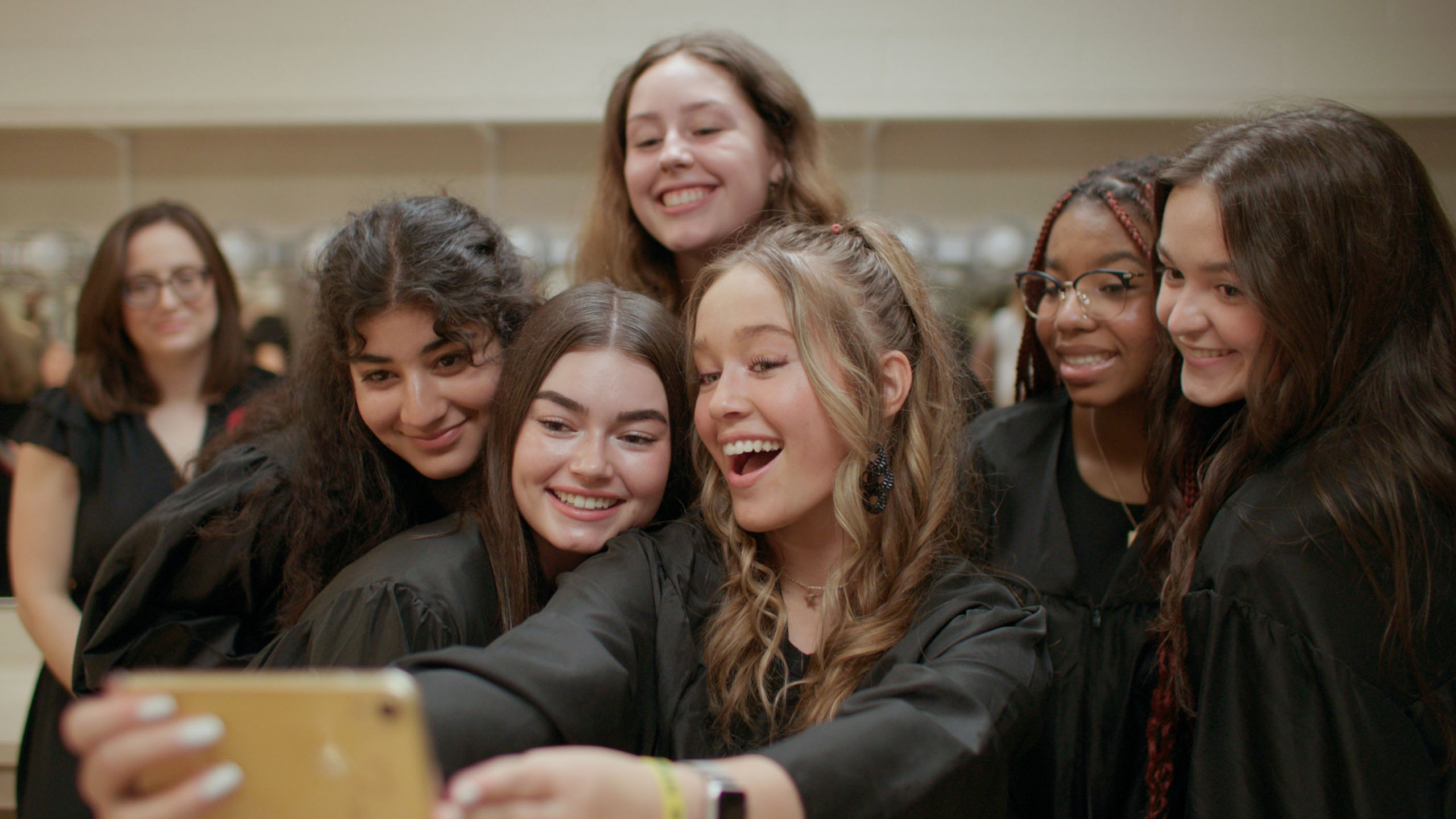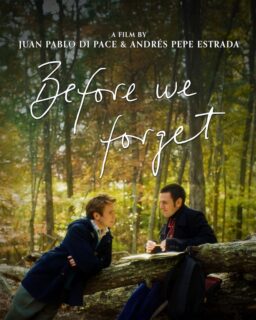Usually, I have to search for what themes bind together the films in a dispatch. But for these three documentaries in the Premieres section, the connection is clear. “Girls State,” “Power,” and “And So It Begins” are all political docs, interrogating the functionality and origin of systems to varying results.
Jesse Moss and Amanda McBaine’s “Girls State,” a sequel to their Sundance winning documentary “Boys State,” commenced filming in 2022, just before the Supreme Court’s decision on Roe v Wade. The court’s impending decision hangs over these young women, as they enter a program that, for the first time in Missouri history, will run concurrently on the same campus as Boys State, both building governments through mock election and serious discourse.
Though abortion is at the front of these subjects’ minds, “Girls State” isn’t overtly about policy debate or building a government, a feature that purposefully says much about the program these young women are in. Instead, this film concerns the inequality and stereotypes that separate educational organizations aimed at girls as opposed to boys. While the boys engage with real topics, the girls are given a lecture about their outfits. The girls are also instructed to maintain a buddy system by never going outside alone, and to stay away from boys. These archaic rules, born from patriarchal standards, of course, mirror the real push and pull optics women politicians must contend with too.
The filmmakers further interrogate issues of misogyny through their array of engaging subjects. Emily is a conservative candidate for Governor, studying journalism, who you can tell is Moss and McBaine’s ideal subject (a person with strong beliefs who’s still willing to listen to the other side). For the program’s paper, she investigates the funding disparity between Boys and Girls State, revealing a wide financial chasm. The opinionated Faith, a liberal, questions the program’s focus on first-wave feminist language as opposed to discussing actual politics. A shy Nisha is searching for social skills while Tochi, who often has the film’s best sight gags, is determined to discover community.
Though Moss and McBaine are sometimes caught trying to hit every emotional queue possible, often bending the film toward far more simplistic ground (this was, unfortunately, never going to be an intensive investigative documentary), their film, a mixture of over calibrated poignancy and genuine sisterhood, is undeniably heartwarming and hilarious.

You always wonder how a filmmaker will grow from a deeply personal picture, particularly if it’s their first. Do they have another story in them? Will they tread new thematic ground? Yance Ford’s “Strong Island,” a film about a broken legal system’s inability to find justice for the director’s slain brother,” was as personal as you can get. He followed that work with a withering critique of the healthcare system in “The Color of Care.”
His latest, “Power,” a Netflix documentary lacking the focused vision of Ford’s previous films, is a work equally concerned with the origins of splintered systems. A film troubled by the history of policing in America, “Power” circles around topics, often repeating bullet points without ever discovering a unique approach to the material.
The tactile material itself, a collage of archival footage of violent police work, is probably the strongest element of “Power.” Ford uses the images to retrace the roots of racism, classicism, and colonialism in the modern-day police force. We see images of cops attacking strikebreakers in 1933, and scenes from films like “Beast of the City” and “The Police Film.” These allusions suggest that Ford wants to critique the disconnect the supportive messaging the media has of policing with the grim reality; there’s even a scene where you hear chilling audio of a woman screaming as she’s being tased, overlaid with an idyllic black and white movie of a suburban cop with his cozy family. But outside of that moment, Ford doesn’t push the issue.
The rudimentary editing doesn’t help either. The film is divided into several chapters, labeled by topic. Ford either doesn’t trust his audience to follow along or is allowing viewers moments to literally press pause. Whatever the case, there are several cuts that lose their effectiveness. Ford also treads very little new ground not already covered by “The 13th” or “Riotsville, USA,” two films that were structurally more interesting. Instead, it’s merely a stream of talking heads, who are often replicating one another. Even Ford makes this mistake, ending on a final note that much like “Power,” doesn’t bear repeating.

Set in 2022, during the Philippines’ national election, “And So It Begins,” Ramona S. Diaz’s documentary is a shaggy, shapeless film. It mostly follows incumbent Vice President Leni Robredo, who is running against Senator Bongbong Marcos Jr. to succeed Rodrigo Duterte for president. The two candidates come from different backgrounds: Robredo is a widow from a working-class background. A progressive candidate, Robredo, whose emblem is the color pink, is also a feminist firebrand and friend of the queer community. Marcos is the scion of the country’s formerly exiled dictator Bongbong Marcos Sr., a man who once said, “We shall make this nation great again.” His alt-right policies make him a perfect foil to Robredo, especially when Duterte’s daughter, Sara Duterte, decides to run for vice president.
These races cause “And So It Begins” to become a film about the existential state and future of a country. Will it be a free and open democracy or one governed by authoritarianism and nepotism? Disinformation, revisionist history, and bribery become the tools of the trade by Marcos; Robred’s grassroots campaign tries to find ways to respond.
Diaz sports a curious lens, one that chases images of political speeches, larger-than-life rallies and man on the street footage meant to give the full scope of the fake news running rampant through the country. The result subtracts shape from her film. The same can be said with the inclusion of Maria Ressa. A journalist and winner of the Nobel Peace Prize, Ressa was the subject of Diaz’s previous film “A Thousand Cuts,” and returns here. Though she provides insight into the country’s propaganda machine, Diaz’s integration of her with Robredo isn’t smooth. The narrative’s veering between the two subjects, causes “And So It Begins” to lack the punch of “Knock Down the House,” instead, lumbering through a nearly two hour run time without direction. There’s a necessary story in “And So It Begins” about the values, desires, and policies of a country caught in a state of transition, but Diaz’s film is too circular, long and hazy to be a political powerhouse.












